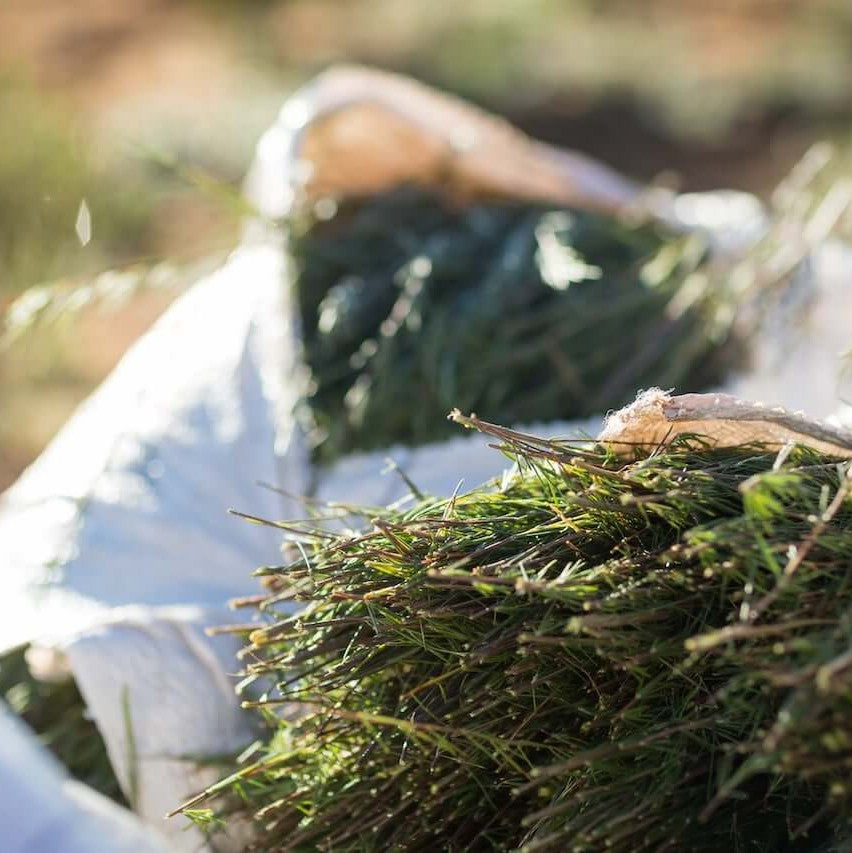Homegrown Rooibos Tea May Be Able To Alleviate Bothersome Nasal Allergies
Jakob Slabbert
For many South Africans that suffer from allergies, Rooibos (Aspalathus linearis) has been a welcome remedy, but up till now evidence has been scant to support this notion.
Given the high cost of allergy and asthma medication, local researchers from the University of Cape Town are now examining the extent to which Rooibos tea can provide relief for those plagued by runny, stuffy noses and itchy eyes.
Prof Jonny Peter, head of allergology and immunology at the UCT Lung Institute says allergies are becoming increasingly common worldwide and the prevalence is increasing in low and middle-income countries too – affecting an estimated 30% of South African adults.
“Different types of allergies include life-threatening anaphylaxis, hay fever (allergic rhinitis), asthma, food allergy, conjunctivitis and skin allergies, such as angioedema, urticaria (hives) and eczema. However, the most predominant is allergic rhinitis, which is typically triggered by house dust mite and fine powdery pollen from trees, weeds and grasses that can flower for up to nine months of the year.
“The cost for treating allergic rhinitis has increased substantially in recent years and places a huge financial burden on many patients, which is why there is a renewed interest in herbal and alternative remedies, such as Rooibos, that might be more affordable and accessible,”
Previous allergy studies have investigated the effects of Rooibos in a laboratory on different cell types (in vitro – outside a living organism), and these have shown some promise.
Bioflavonoids, such as rutin and quercetin, that are found in Rooibos, could relieve itchy eyes and a runny nose. Quercetin can block the release of histamine from mast cells, and this may be why it could reduce symptoms.
Prof Peter and senior researcher, Dr Sarah Pedretti have also conducted their own cell studies and found Rooibos to suppress basophil activation.
“Basophils are white blood cells involved in many kinds of inflammatory reactions, particularly those that cause allergic symptoms. This means that Rooibos could to a certain degree control or inhibit the allergic response, but for many herbal remedies promising lab data has not translated to a meaningful clinical effect. The clinical trials we are about to embark on should address this gap and give us a clearer indication of its clinical effectiveness,” says Prof Peter.

The two trials are set to start in the next few months and will build on the preliminary findings. Prof Peter explains: “The first will be an open-label, randomised active-controlled trial to evaluate the efficacy of oral fermented and unfermented Rooibos (Aspalathus linearis) extracts for the treatment of house dust mite-induced allergic rhinitis. Our study will be able to tell us whether any benefit can be derived from drinkable quantities of a standardised fermented and unfermented Aspalathus linearis extract – sold commercially and readily available as Rooibos tea. The overall objective of this study is to evaluate the effect of oral ingestion of Rooibos tea compared to an active control of decaffeinated black tea and if it can reduce the clinical effects of nasal allergen provocation testing with house dust mite in sensitised allergic rhinitis patients. We’re aiming for 80 participants.
“The second trial will evaluate the efficacy of nasal irrigation with fermented and unfermented Aspalathus linearis extracts, also for the treatment of house dust mite-induced allergic rhinitis. The objective of this study is to evaluate the effect of nasal irrigation with Rooibos tea compared to an active control of saline solution, and whether it can reduce the allergic response from house dust mite in sensitised patients. Here we’re aiming for 130 participants.
“We think that Rooibos may have good allergenic effects. The trials will be able to give us a clearer picture and will provide further indication in terms of specific concentrations needed to provide the desired outcome.”
He advises allergy sufferers to not replace antihistamines with Rooibos just yet, but that in future more natural treatments containing Rooibos could be beneficial.
